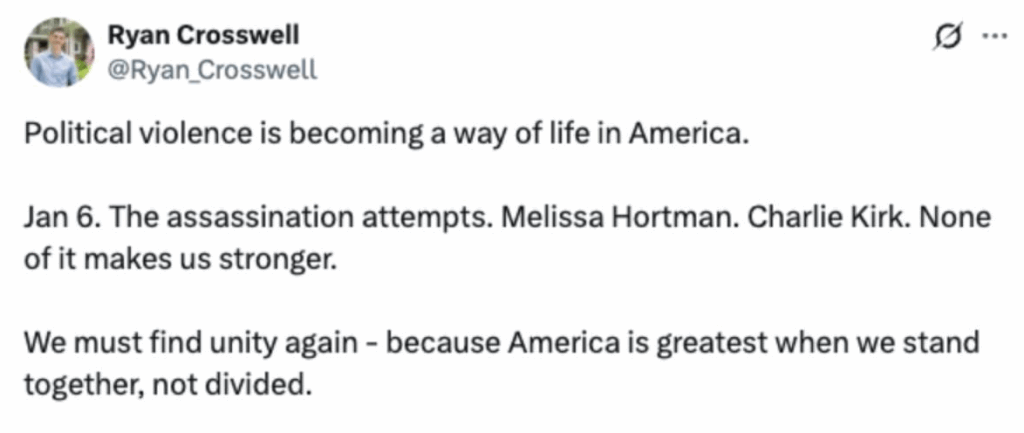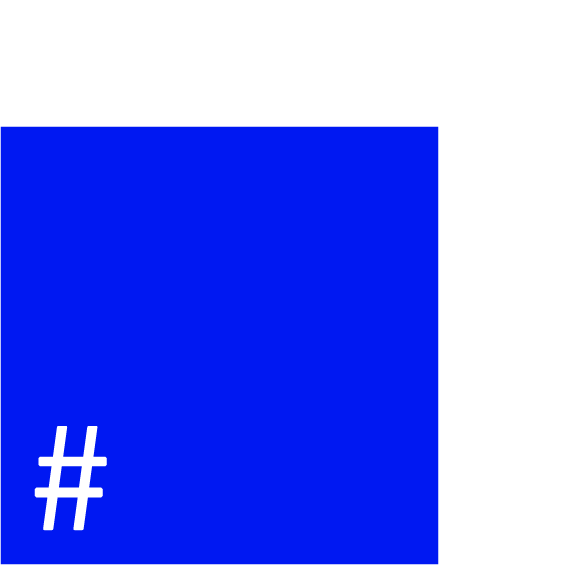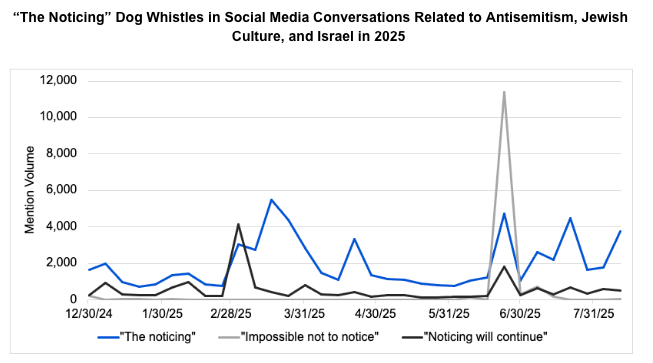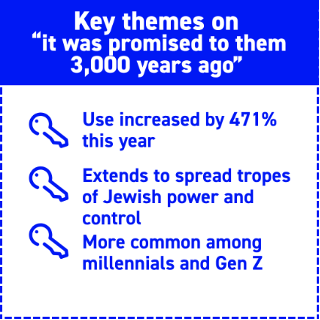A German marching song once sung by Nazi troops during World War II has found a second life online. Erika, composed in 1938 by Herms Niel, was a staple of Nazi military bands, and though its lyrics are not political, its history ties it inextricably to Germany’s Nazi past. Today, the tune has gone viral across many social media platforms including TikTok, Instagram, and YouTube, and streaming platforms like Spotify, Apple Music, and SoundCloud where it has been remixed into versions that generate royalties for uploaders. The song has even been used in marketing campaigns by some companies to promote products and video games.
A Meme, a Beat, and a Dog Whistle
What once functioned as a symbol of the Nazi army now circulates on social media as an audio meme in casual mainstream videos. A Sky News investigation last year found more than 22,000 TikTok videos using Erika sounds, many of them attracting millions of likes. More recently, our September 2025 analysis, identified over 30,000 TikTok videos using variations of the song, based on a tally of sound pages of the song on the platform. While some of these clips are played for humor or stripped of historical context, others explicitly pair the song with imagery celebrating Nazi ideology or Holocaust denial tropes—demonstrating how easily extremist content can slip into mainstream feeds.
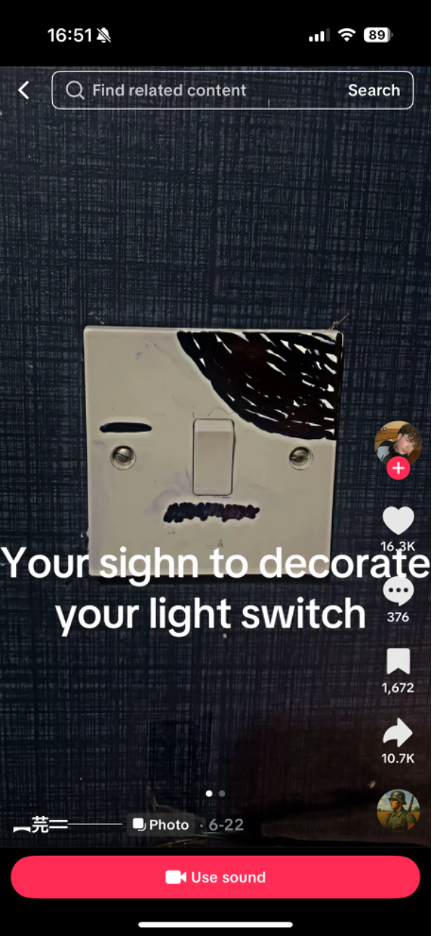
Beyond TikTok: Erika circulating on several platforms
Using the same methodology, we identified more than 20,000 Instagram reels featuring the tune, repurposed for memes, Holocaust denial edits, or even product marketing. For example, the rain-drum company YardRythm has posted at least four videos using variations of Erika, the most recent on August 28, 2025, with the first appearing nearly a year earlier on August 30, 2024. Engagement on these posts is significantly higher than on their other content: the first two Erika reels, published on August 30 and September 3, 2024, received 2.4 million and 1.5 million likes respectively, while the five non-Erika videos posted in between averaged only 513 likes.
Other companies have also used the song. World of Warships, an online naval warfare game, featured Erika in a YouTube advertisement promoting the introduction of German World War II–style ships. Comments on that video were disabled, unlike on other posts by the company, suggesting concern about problematic responses. Meanwhile, streaming platforms like Spotify, Apple Music, and SoundCloud host dozens of remixes, allowing creators to monetize plays through royalties. On fringe platforms like Telegram, Gab, and Odysee, Erika is used more explicitly in propaganda videos, underscoring its dual role as both a viral sound in mainstream culture and a symbol exploited by extremist communities.

A Global Spread
The sheer reach of Erika underscores why its resurgence online is concerning. Between TikTok, Instagram, YouTube, and streaming platforms, tens of thousands of videos and millions of interactions ensure the song is no longer confined to fringe spaces.
On the surface, Erika can sound like an upbeat marching tune, which is why so many casual viewers encounter it as just another catchy clip in TikTok or Instagram memes. But its origins as a Wehrmacht marching song give it a second, coded layer of meaning. That double use is what makes Erika a dog whistle: it appears harmless to outsiders, yet for those familiar with Nazi-era culture it signals far-right nostalgia and identity. This dynamic also offers plausible deniability—users can dismiss it as “just a song” while still embedding Nazi-linked culture into mainstream spaces.
However, Erika is also not the only piece of Nazi-era audio to resurface online. TikTok, Instagram, and YouTube also host thousands of clips using translated Hitler speeches, SS marching songs, and even the banned anthem of Nazi Germany “Horst Wessel Lied.” Taken together, these examples show that Erika is part of a wider trend in which music and sounds tied to fascist Germany circulate as viral content, blurring the line between entertainment and extremist symbolism.
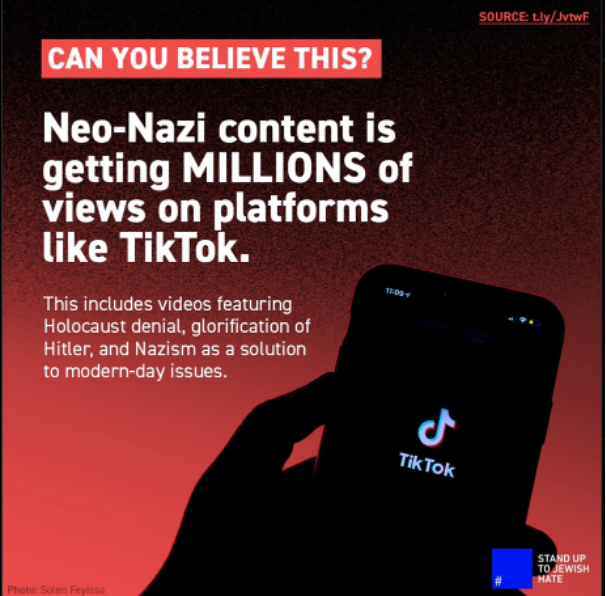
Why This Matters
This matters because repetition normalizes: when Erika becomes just another catchy audio clip or a tool for driving engagement, it risks trivializing the violence it was once tied to and provides cover for those who deliberately use it as a dog whistle. Its popularity highlights the double bind of platform virality—songs can spread for humor or irony, but their visibility also creates opportunities for extremists to piggyback on trends and inject propaganda into everyday digital culture.
Its normalization, has also allowed it to spill out of the digital space and into real-world incidents. In 2023, footage from an Oktoberfest celebration in Saxony showed revelers giving Nazi salutes as the song played in the background, prompting police investigations and widespread outrage. The following year, members of the Warwick University Conservative Association in the UK were filmed dancing and singing along to Erika at a formal dinner, an incident that drew condemnation from Jewish student groups and led the organization to issue an apology. In a UK school, students repeatedly sang or hummed Erika to target a Jewish classmate, turning it into a tool of harassment. And in the US Open in 2023, a fan was ejected for singing the Nazi Germany national anthem during a game featuring German player Alexander Zverev who called it out.
Erika’s viral spread shows how a song once tied to the Nazi army can slip back into everyday culture, blurring the line between harmless entertainment and the normalization of extremism.


